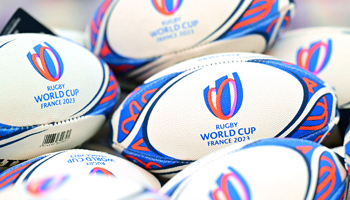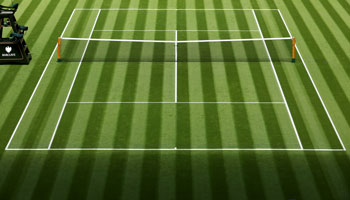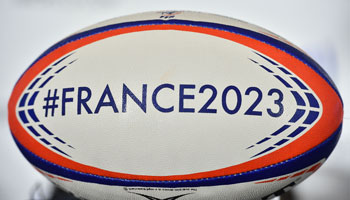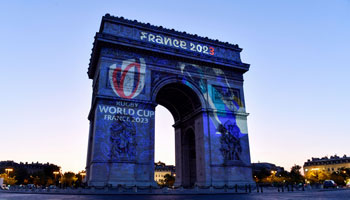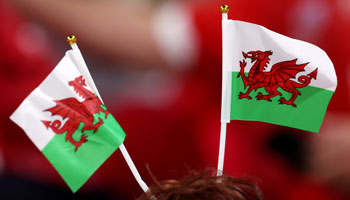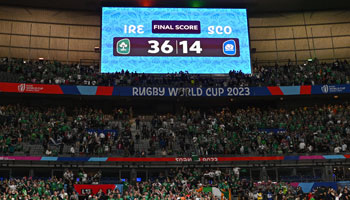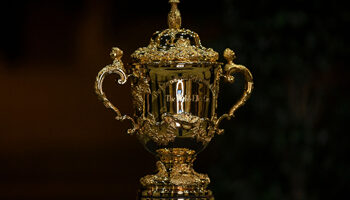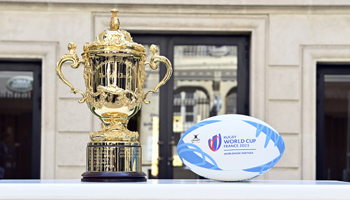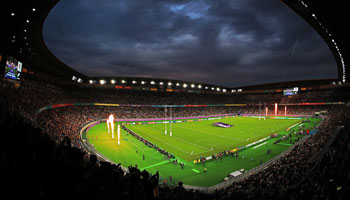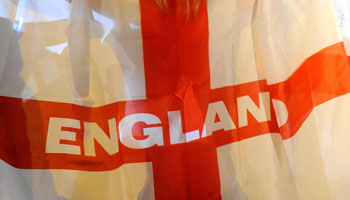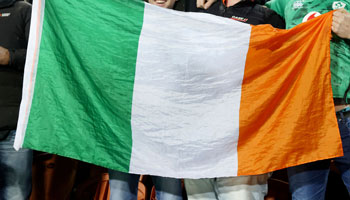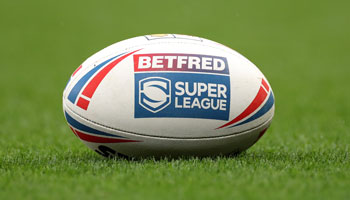The 10th men’s Rugby World Cup is set to kick off on September 8, with hosts France taking on New Zealand in front of what is sure to be a full house at the Stade de France.
Over the space of seven weeks, 20 teams will contest 48 matches in a bid to lift the Webb Ellis trophy, with nations split into four pools of five, from which the top two in each pool qualify for the quarter-finals.
From that point on, the tournament follows a knockout format until the winner is crowned on October 28.
To predict what might happen in France, we have analysed every match played at the Rugby World Cup since its inception in 1987.
Which team has the best record?
The World Cup has generally been dominated by teams from the Southern hemisphere, with eight of the previous nine editions won by one of New Zealand, South Africa or Australia.
Despite being tied with South Africa on three wins, New Zealand are the most successful nation in the tournament’s history, having only once failed to reach the semi-finals in 2007.
England’s famous 2003 victory – sealed by a Jonny Wilkinson extra-time drop goal – remains the only World Cup triumph by a Northern hemisphere side.
They looked set to repeat the feat in 2019 after producing a superb semi-final performance to knock out New Zealand, but ultimately fell well short against a rampant Springboks side in the final.
That was one of three runners-up finishes by England teams, the joint most in the tournament’s history alongside France.
No other European nation has made it past the semi-finals, with Wales having fallen in the last four three times and Scotland once.
Ireland – ranked number one in the world going into the 2023 event – have lost in the quarter-finals on a record seven separate occasions.
Who has the beating of their rivals?
New Zealand have the best World Cup record against teams in this year’s tournament, with 44 wins from 51 matches. The All Blacks have scored an average of 44 points per game in those matches, while conceding only 14.
Fellow three-time champions South Africa are the only other team with a win rate above 80 per cent, with 31 victories from 38 games against their potential opponents in 2023.
Despite possessing one of the worst head-to-head records of any team in the tournament, Japan inflicted one of the Springboks’ seven defeats in arguably the greatest upset in rugby history in 2015. The Japanese scored a last-minute try to beat their illustrious opponents 34-32 and secure their first World Cup win since 1991.
What does the draw look like?
Tournament favourites New Zealand have been drawn alongside hosts and second favourites France in Pool A.
The French are one of just three sides – along with Australia and South Africa – to have beaten the All Blacks on multiple occasions in World Cups, but a third win looks a tough ask given New Zealand’s perfect pool stage record of 31 victories from 31 matches.
Pool B contains three of the world’s top five in Ireland (1st), South Africa (3rd) and Scotland (5th), while Pool C looks to be wide open with Australia (8th) and Wales (10th) both struggling for form.
England also appear to be a long way from their best, with coach Steve Borthwick searching for his best XV and captain Owen Farrell suspended for the first two matches, but they can take solace from being drawn in a winnable Pool D.
Their record against their group stage opponents reads seven wins from seven, with an opening match against Argentina by far their toughest test on paper.
When could the top teams meet?
Borthwick’s men have also benefited from being in the bottom half of an incredibly lopsided draw. With all of the world’s top five stationed in the top half, sixth-rated England cannot meet a single team ranked above them until the semi-final stage.
Depending on how results fall, England could set up a clash with their former coach Eddie Jones’ Australia side in the quarter-finals. This is far from guaranteed on current form, however, with England having won just three of their eight Test matches in 2023 and Australia having lost four from four.
In the other half of the draw, top-ranked Ireland look to set to battle it out with defending champions South Africa for the right to avoid New Zealand in the quarter-finals, but the reward for that is almost certain to be a meeting with hosts and Six Nations runners-up France.
Does the Six Nations predict the World Cup?
This will be the sixth time that the Six Nations has taken place in the same year as a World Cup, and the previous five occasions have shown that it can be a good predictor of how the leading sides in the Northern hemisphere will fare.
Eight of the 10 nations finishing first or second in the Six Nations made it at least as far as the quarter-finals of the corresponding World Cup, with five of them reaching the semis. This includes England’s historic triumph in 2003, which was built on the back of a Grand Slam-winning Six Nations campaign.
As a result, Ireland and France – who were by far and away the best teams in this year’s tournament – look good bets to make it to the knockout stages, even accounting for their difficult draws.
Teams finishing third or fourth in the Six Nations – Scotland and England in 2023 – have generally reached the quarter-finals but rarely ventured beyond that. Wales’ surprise run to the semi-finals in 2011, which ended in a narrow 9-8 loss to France, was the most recent exception.
Meanwhile, a poor Six Nations showing usually precedes a disappointing World Cup, with seven of the 10 teams finishing fifth or sixth crashing out in the pool stage and none making it as far as the semi-finals.
Wales and Italy occupied the bottom two places earlier this year, with both teams undergoing periods of transition.
Join bwin today and receive up to £20 money back as a FreeBet if your first wager (3+ selections at odds of 1/2 (1.5) or greater) is a loser! Terms and conditions apply.
